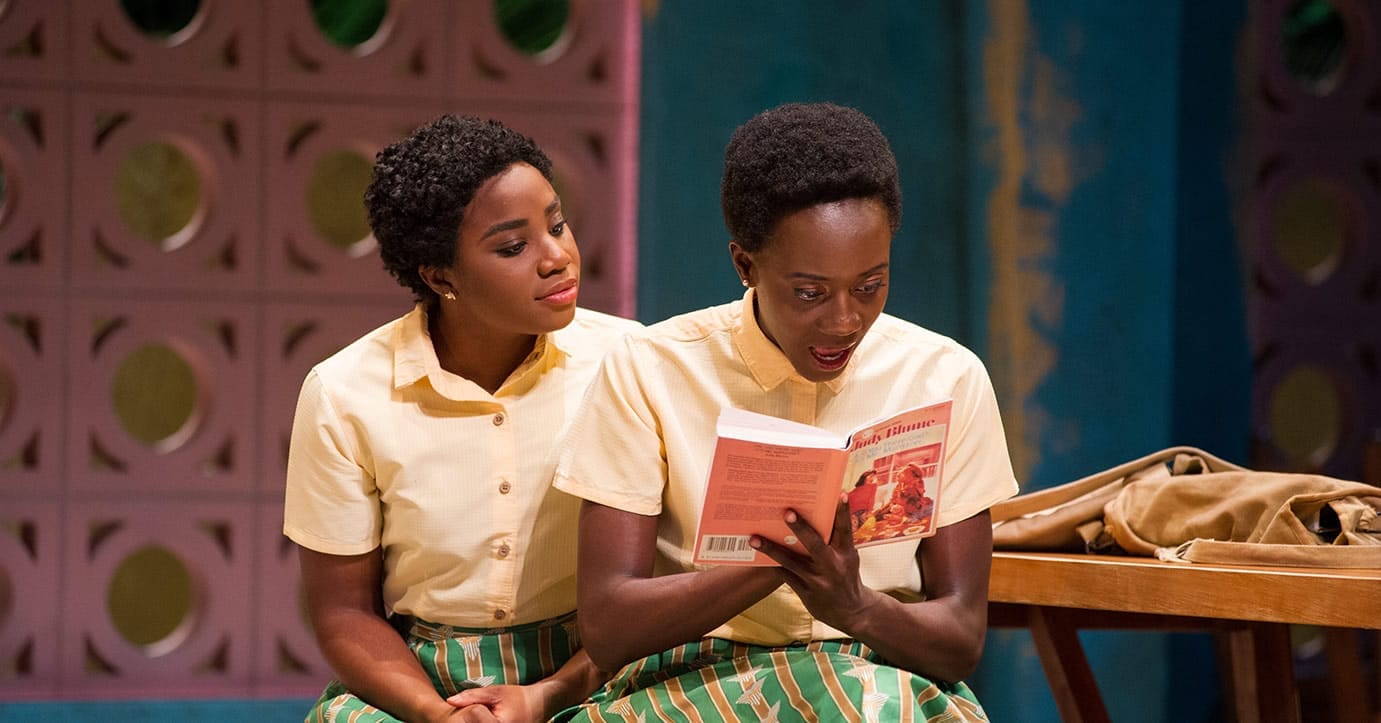Community, Leadership, Experimentation, Diversity, & Education
Pittsburgh Arts, Regional Theatre, New Work, Producing, Copyright, Labor Unions,
New Products, Coping Skills, J-O-Bs...
Theatre industry news, University & School of Drama Announcements, plus occasional course support for
Carnegie Mellon School of Drama Faculty, Staff, Students, and Alumni.
CMU School of Drama
Thursday, April 02, 2020
Temidayo Amay: Being, among other things, a nonbinary actor
DC Theatre Scene: Hi, my name is Temidayo Amay. I am an actor, writer, director, producer, and artist all day, every day. I like to cook, and bake. My favorite television shows include Grace and Frankie, Sex Education, and Grey’s Anatomy. I am a Libra sun, Leo moon, and Scorpio rising. I have deeply melanated skin and the most delicious, kinky-coily hair. I also happen to be a queer individual on the nonbinary spectrum.
Subscribe to:
Post Comments (Atom)

4 comments:
I loved reading this article. Intersectionality is near and dear to my heart, and I was so excited to hear another artist’s perspective. The one-word synopsis of this article, author Amay puts in bold letters, halfway through the discussion. “If the role asks for a trans/nonbinary actor, hire a trans/nonbinary actor. Full stop.” This of course, makes me think back to one of ScarJo’s (many) strange and uncomfortable controversy-provoking roles. She was casted as a transman (one that, I may add, is a real life person) in Run and Tug, and was not apologetic- much like the infamous Ghost in The Shell incident. Scarjo even said she “regretted that political correctness has cost her roles and widespread criticism”. Problematic? I think so. When a cis-gendered actor is cast in a non cis-gender or trans role, you are taking away an oppertunity for somebody who has this experience, and a minority. As Amay states in their article, it is like casting a white person in the role of a POC. You could look at it as taking away that story from the minority, the person who is oppressed, and giving it to a person of privilege.
Non-binary actors are constantly denied work, it is only fair that if you choose to do a show which has a non-binary character, you should hire a non-binary actor. It is as simple as that. This is not about an actor’s ability to portray roles outside of their personal experiences. Of course, actors are trained to do exactly that, but non-binary people and people of color are denied roles when race/gender isn’t a factor in casting, so why also deny them of roles that are written for them? I also love that the director in this story took the time to ask the actor how they felt about dressing rooms. Inclusivity is only effective if we make sure our spaces reflect our views of inclusivity, that includes the plays we write and produce. Theater spaces want to be on the bleeding edge of the liberal and progressive agenda, but we can’t claim to be inclusive and progressive if we just produce plays by old dead white men.
This article was really interesting and incredibly relevant to our current theatrical community and society. Gender is a massive issue these days, and it is finally being talked about as an actual aspect of everyday life, rather than a taboo subject, that someone might extend past the traditional binary male vs. female. Theatre is known for being an open and progressive community, and gender acceptance and celebration is something that we must be fighting for. Both in our industry and in society in general. This was a really wonderful article because it was words directly from a nonbinary person. A lot of times, there are articles that speak on this subject, but they don’t actually include the point of view of the people who are nonbinary/gender expansive. One of this article’s major points was the idea that we need to treat nonbinary/trans/gender expansive people as humans. It sounds like a given, but as we know by looking at history, society isn’t great at treating unique people as people.
Despite the title of the article, this article begins describing a person. Someone who likes to bake, whose favorite TV show is Grace and Frankie, a Libra, etc. Then the article goes on to describe Temidayo's gender identity: nonbinary. I think that this is a really interesting reminder because it is very easy to stick someone into a box and make the way they identify their one single personality trait. However, obviously, that is not the case for any human being. I also think that this is such an important article because it begins to break down the stigma that often comes with gender identity. They also go on to describe the challenges they face, having predominantly female physical traits, and the ways in which this has affected their relationships. The feeling of imposter syndrome because of this. They also point out the lack of nonbinary and trans characters in the theatre, which is something that is continuing to increase but has a long way to go. Elena Keogh
Post a Comment